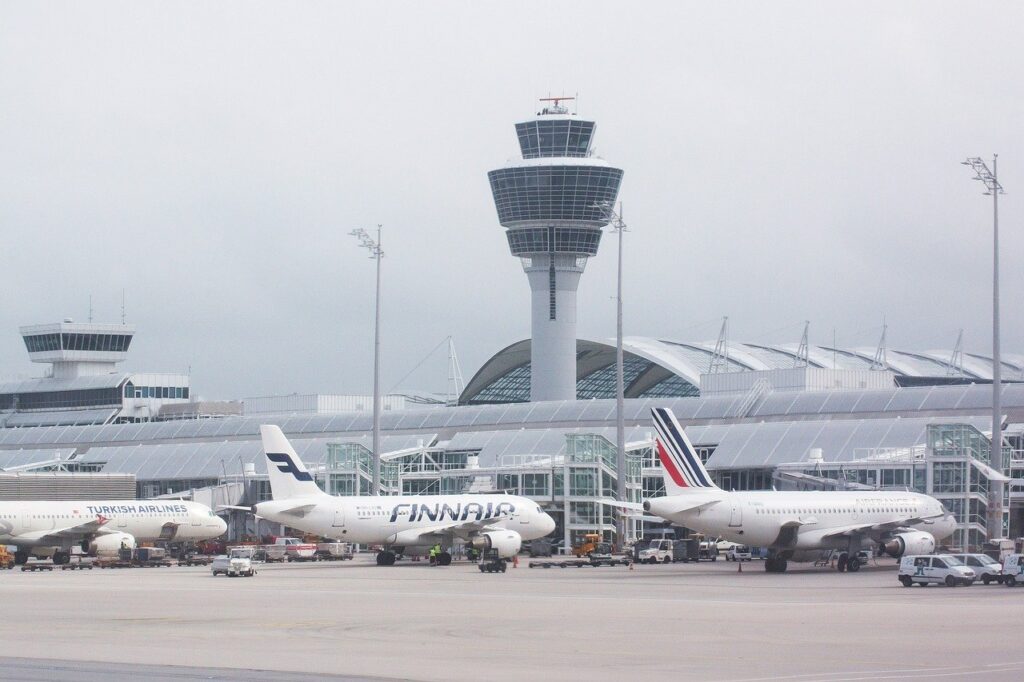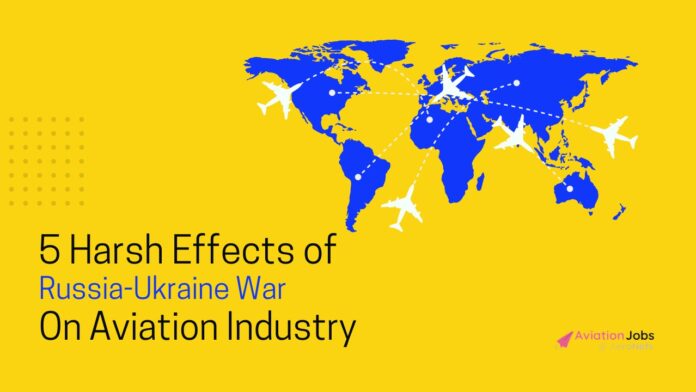The civil aviation industry is observing a series of flight bans to and from Russia due to the Russia-Ukraine war. Russia annexed Crimea in 2014 resulting in a slowdown in the Russian economy. Russia deliberately launched a special military operation in Ukraine in Feb 2022.
World leaders are forcing a list of sanctions on Russia. As Boing and Airbus suspended maintenance support to Russian airlines, we can foresee a difficult time ahead. The aviation industry is already one of the worst-hit sectors due to pandemics and this war will drive a few years back.
Table of Contents
First Corona pandemic and now Russia-Ukraine war
After the pandemic still a large number of countries are not fully operating international flights. In times like this when the aviation industry is looking for a baby step towards economic recovery, the Russia-Ukraine war is just a major setback. Most of the countries have closed their airspace for Russia and so did Russia.
Some airlines may just go out of business because their major flights operate to and from Russia. Others may lose their aircraft because the lease agreement is no longer valid. Russian airlines will be forced to operate within a limited international market. Since Russia has closed its airspace for some countries also, the flights will be longer for a large number of destinations. Airfare will increase as well which will cause passenger inconvenience.
Russian airline Aeroflot and Aeroflot group at a glance
Russian airline Aeroflot in 2021 transported 21.4 million passengers, and Aeroflot Group as a whole 45.8 million passengers. Aeroflot has the largest Flight Control Centre in Eastern Europe.
In 2006 Aeroflot became a full member of SkyTeam which is the second-largest aviation alliance in the world. Also, since 2011 it is part of the alliance’s cargo structure, SkyTeam Cargo. SkyTeam allows its customers to fly to 1,036 destinations in 170 countries because of large shared network routes.
Before the Russia-Ukraine conflict, Aeroflot had 25 active codeshare agreements with foreign and Russian airlines.
Aeroflot Group is one of the largest aviation holdings in the world. In 2011, the Government of the Russian Federation transferred several regional airlines under the control of Aeroflot.
Rossiya airline operates in the tourism market including the Far East. Pobeda Airlines, a low-cost airline belonging to Aeroflot Group, showed the highest efficiency during the COVID-19 epidemic.
Aeroflot’s fleet includes 186 Airbus, Boeing, domestic Superjet 100 aircraft. By 2028, Group’s fleet will be 600 units, of which 235 are domestic.
As Boing and Airbus are not on good terms with Russia and Considering the current scenario this looks far from reality.
1. Effect on Russian airline
Aeroflot suspended temporarily all international flights from 8 March this year.
Rossiya Airlines and Aurora Airlines also suspended most of the international services.
Aeroflot will have no limitations on flights across its route network within Russia, except temporary restrictions to cities in southern Russia. Also, flights to or from Minsk (Belarus) will continue.
Russia is going to operate with limited airspace shortly until the Russia-Ukraine war situation goes back to a new normal.
2. How banning Russia curbs the international civil aviation market?
Airlines around the world save money and fuel operating to and from Russia.
Russia serves as an Asia-Europe corridor also has a geographical advantage.
Closing the Russian air space may cause western countries to fly more south. In other words, the aviation map will change globally. The civil aviation of Ukraine is already in turmoil. Ukraine has closed civilian flights since Feb 24 this year.
Operating costs will increase for almost all airlines also routes will be longer.
Airlines will be using extra fuel that too at higher prices.

3. What lies ahead for other airlines?
A Malaysian airline airplane MH17 was shot down for flying above eastern Ukraine in 2014.
Finnair suspended all flights through Ukraine airspace. Flights to Osaka and Hongkong are canceled until 30 April 2022 and to Russia until 28 May 2022. They have also made changes to flights to Asian destinations.
Virgin Atlantic operates UK-Asia flights now they will avoid Russian airspace and duration will be 15-60 mins longer. Among others on the list of affected are American airlines as well as Lufthansa Airlines.
Alternate routes usage through Kazakhstan airspace increased significantly.
4. Major effects on the aviation industry
Flights to Asia now fly much further south to avoid Russian airspace. Polar flights from the U.S. to Asia will not use Russia as an alternate airport. It is a safety concern in events of emergencies.
In the current situation, polar flights must go further south and have a technical stop for fuel, which increases flight time and cost.
Qantas has already decided to avoid flying over Russia for now, even without prohibition.
5. Challenges for the workforce to cope with a new routine
Personnel throughout the airlines will have to cope with a new schedule. Pilots, cabin crew, air traffic controllers, and maintenance crew are among the most affected. These are the least of the worries as lay-off may be already on the list.
The huge operating cost for airlines is going to create a situation.
Conclusion
The European Union has closed its airspace for all Russian flights. USA and Canada did the same. As a result, Aeroflot canceled flights to destinations in the U.S., as well as Cancun, Mexico, and Punta Cana in the Dominican Republic.
Russia has shut airspace for 40 nations as a retaliatory measure.
As a consequence of the Russia-Ukraine war, some flights will be rerouted, adding flight time and increased fuel costs.
Also, read the article on Huge aircraft orders by 20 airlines.


